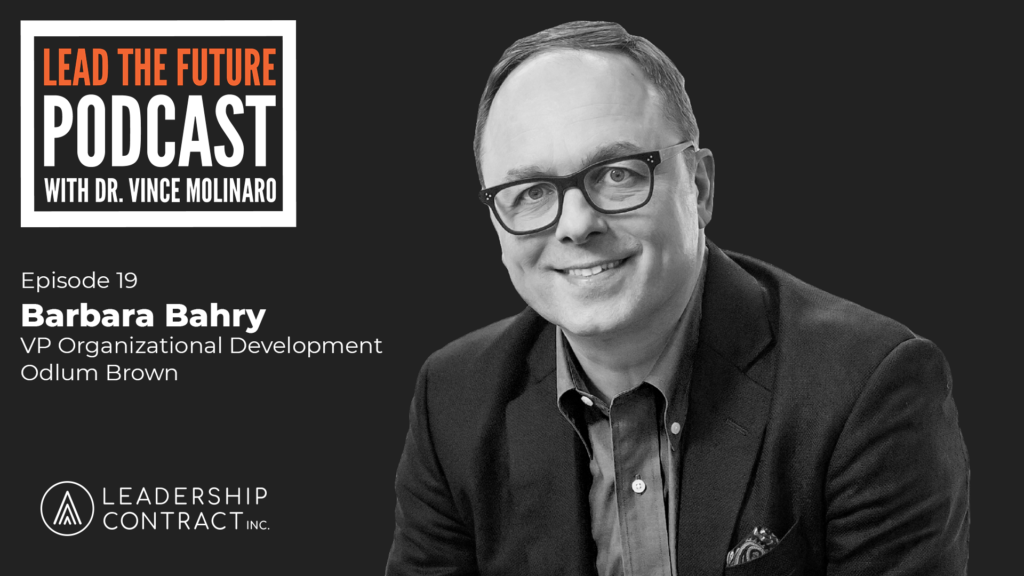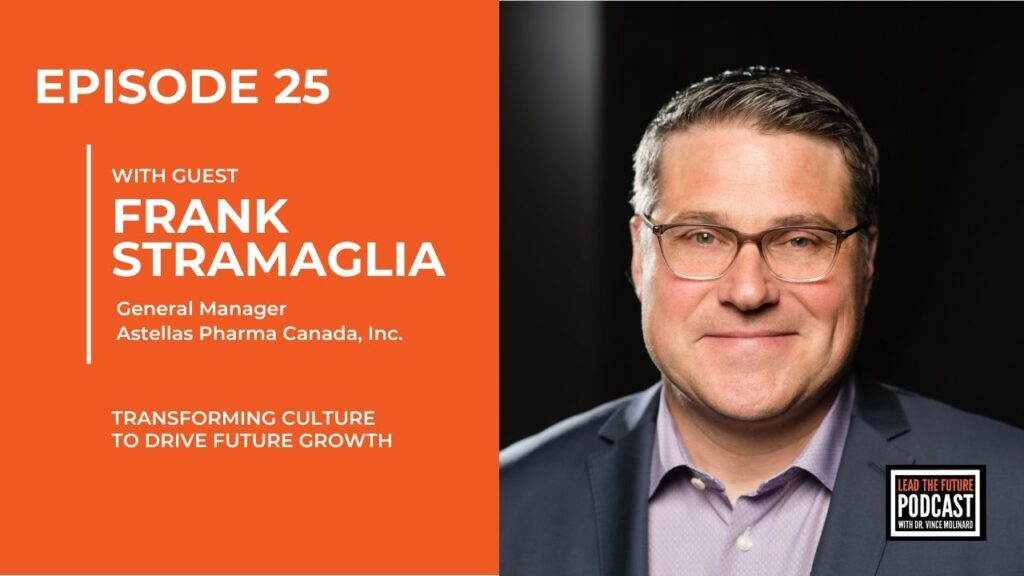BIG IDEA
Building leadership accountability is a long game.
“Fast is not good enough when it comes to developing leaders,” Barbara Bahry, Odlum Brown’s VP of Organizational Development, told me recently on our Lead the Future podcast. “You’ve got to be committed, consistent, and playing the long game so that it’s not seen as a kind of flavor of the month.”
Odlum Brown is a full-service investment firm, and this year they’re celebrating their 100th anniversary. That’s quite a legacy for the firm’s leaders to uphold, and it’s something Bahry and her fellow senior leaders are intently focused on.
Bahry said a colleague of hers talks about the difference between people thinking of themselves as stonemasons, versus building a cathedral. “We want everybody to be thinking about their role as building a cathedral,” she said. That means individual leaders aren’t just focused on their own role or their own responsibilities—they’re thinking about the role they have to play in the greater good of the organization.
WHY IT MATTERS
At an inflection point, leadership can make or break your organization.
Eight years ago, Odlum Brown was at an inflection point. They had a nearly 100-year history, and they wanted to ensure they preserved their corporate culture as they continued to grow. It was important that with six different offices they didn’t end up with six different cultures. They had many leaders who’d been promoted because of their technical expertise, but they hadn’t invested in developing those people’s leadership skills. They knew they needed to take the organization to the next level, and they knew that leadership, and developing a strong leadership culture, could make the difference.
Bahry told us that the organization started by defining clear leadership expectations based around the four terms of the Leadership Contract. Every leader was asked to make a personal commitment to becoming an accountable leader. Odlum Brown has embedded those expectations into their social structures and people systems including conversations with team members about performance and contribution. Today, small groups of leaders are self-organizing into cohorts and meeting regularly to talk about leadership challenges. “That’s been a really wonderful and unexpected surprise,” Bahry said.
THE IMPACT
Strong leaders manage well in a crisis.
Bahry said that the leadership accountability work they’ve done in the past eight years “has contributed to how well our firm managed through COVID.” Instead of seeing a downturn in business, “We had some of our best years ever,” Bahry said.
A strong culture of leadership accountability can be a differentiator at any time, but in a time of crisis, it’s essential. When the world is in turmoil and your organization is challenged, you won’t survive without leaders who know what’s expected of them and their teams, who have each others’ backs, who work together for the good of the organization, and who know how to have tough conversations.
WHAT TO PAY ATTENTION TO
What’s the day-to-day conversation about what it means to be a leader in your organization?
Building a better leadership culture takes more than a single workshop, Bahry told us. “You really need to be thinking about what’s the drum beat every day about what it means to be a leader in your organization?” she said.
Bahry told us that HR plays an important role in instilling leadership accountability throughout an organization, for example, by embedding leadership expectations into performance management and compensation and reward programs. For Odlum Brown, the 100th-anniversary celebration is another opportunity to not just celebrate, but reaffirm, the company’s culture. “When you celebrate 100 years, you don’t just celebrate it once,” Bahry said.
Every leader, in every department, has a role to play in creating a leadership culture. Living up to the four terms of the Leadership Contract; stepping up to your responsibilities as an accountable leader; talking to your team about what leadership means to you—these are all things you can do every day to strengthen your organization’s leadership culture. Bahry also stressed to us the importance of “a willingness to be vulnerable and talk about the personal commitment you’re making” to being a better leader.
NEXT STEPS
- Watch this conversation on episode 19 of Lead the Future
- Take our Leadership Culture Survey to assess the health of your team or organization. Have you been clear about your expectations for your community?








